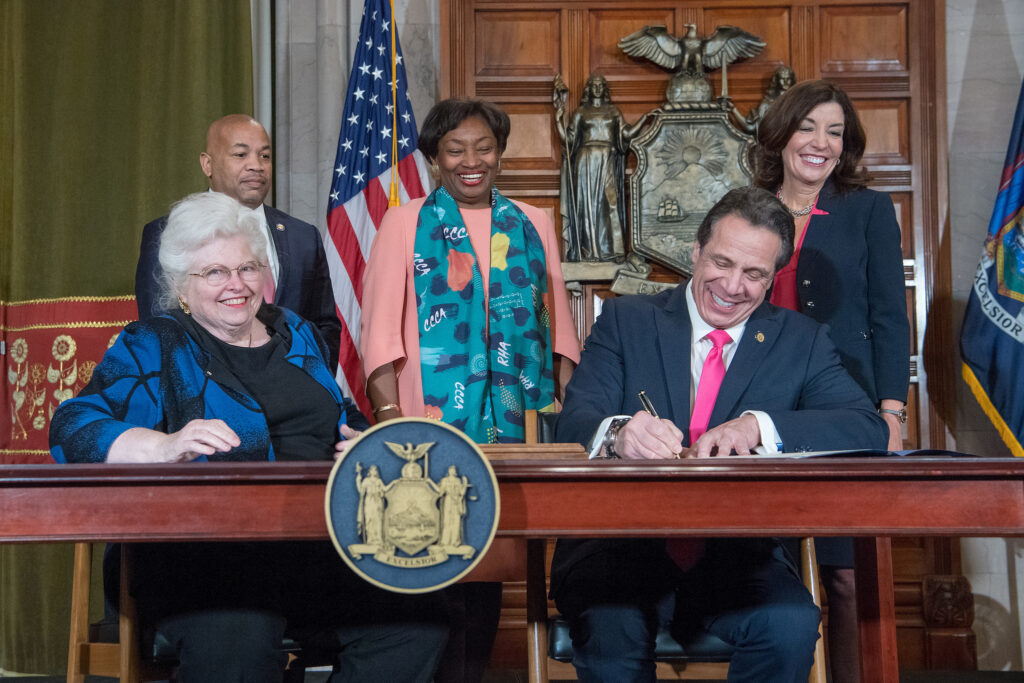As an ObGyn physician in my 26th year of practice, I feel compelled to comment on recent developments in our country regarding late-term abortions.
The Reproductive Health Act (RHA)

On January 22, 2019, not coincidentally the 46th anniversary of the United States Supreme Court Roe v. Wade ruling, the Reproductive Health Act (RHA) became a statute in New York.
Other states are rumored to follow, including Rhode Island, Vermont, New Mexico, and Illinois.
This law states that a medical provider can perform an abortion “according to the practitioner’s reasonable and good faith professional judgment based on the facts of the patient’s case: the patient is within twenty-four weeks from commencement of pregnancy, or there is absence of fetal viability, or the abortion is necessary to protect the patient’s life or health.”
This means that medical providers can legally abort babies from 24 weeks of pregnancy up to full-term pregnancy for any reason.
What Is The Age of Viability?
Medically speaking, we know that babies as young as 24 weeks of pregnancy (24 weeks gestational age) up through full term (37-40 weeks gestational age) can survive after birth (also termed the age of viability).
To provide a quick quarter decade perspective, it is relevant to know that in my personal career, medicine has seen the gestational age of potential viability become earlier by 2 weeks.
During my residency training almost 27 years ago, we considered an unborn baby of 26 weeks gestational age potentially viable should that infant need to be emergently delivered.
Continuing advancements in medicine now consider babies born as early as 24 weeks, 0 days gestational age, to be viable if an emergent delivery is necessary.
There are, in fact, numerous ObGyn physicians and hospital systems, in partnership with their Neonatology teams, who perform emergency deliveries at the maternal patient’s request, as early as 24 weeks gestational age, with the assumption that those infants can survive.
In fact, on February 27, 2019, CBS reported on a baby in Tokyo who was going home from the hospital after being delivered at 24 weeks, weighing under 10 ounces, the smallest surviving baby on record.

Indeed, this was a worldwide extreme, and 10 ounces is tiny, even for 24 weeks.
Thus, in my relatively short 26 years of practice, medical advancements have pushed the age of potential viability back two weeks, from 26 weeks to as early as 24 weeks gestational age.
Will this trend continue? Quite possibly.
The RHA’s Misleading Medical Rationalization
I feel obligated to give my opinion on this legislation, RHA, and misleading medical rationalization as to its necessity.
I am admittedly a person who believes that life begins before the physical birth of a “fetus,” which I prefer to call a baby.
In addition, I try to live and practice my profession as an ObGyn physician in a way that honors and protects life by my worldview.
From that perspective, which I believe both sides would label as “pro-life,” let me state that in my 26+ years of practice, out of medical necessity, I have delivered hundreds of babies (from over 6,000 deliveries) before natural labor had begun and before completion of a “full term” pregnancy (37 weeks).
We are doing this to protect the “life and health” of my pregnant patient.
Medical professionals have performed many of these deliveries during the extreme prematurity phase, ranging from 23 to 28 weeks gestational age and even at pre-viable gestational ages, to safeguard the mother’s life. Sadly, some of these babies passed away after birth.
Again, I am a “pro-life” person, and I practice Obstetrics and Gynecology to my worldviews regarding life and its inherent value.
Even still, I have delivered hundreds of babies prematurely. Unfortunately, have had to deliver some pre-viable to protect my patient’s life and health.
That said, I have NEVER had to actively end a baby’s life before delivering my pregnant patient, and I cannot think of a single instance where it would be necessary.
There is no medical rationale for needing to end the life of a baby post the age of viability before delivery in order to protect the pregnant female patient. Period.
If the mom’s life is in danger, or even if her undefined “health,” as stated in RHA, is jeopardized to the professional opinion of the medical provider and patient. Then deliver the baby by induction of labor or Cesarean Section and in this manner, tend to the mother’s health needs.
There is no medical reason that the post-viable baby must be aborted (its life ended) before delivery.
The Reproductive Health Act Makes No Medical Sense

Many supporters of the RHA and similar bills are stating that it is in the name of a woman’s health. Perhaps her very life, that laws allowing abortion are needed beyond 24 weeks until full-term delivery.
This makes no medical sense to me, a physician of three decades.
Again, if mom’s life or “health” is in jeopardy, deliver that pregnancy and protect the woman, but there is no medical reason for the baby’s life to be terminated first.
If those who oppose my view read this opinion, I am certain that some medical experts will attempt to present examples where they believe I am mistaken.
They may present a medical condition in which they believe ending the life of the baby. In fact, they might present it as safer for the pregnant patient than simply delivering the baby alive.
I would evaluate the medical specifics respectfully. I believe that parties with medical knowledge will agree. In 99.9% of cases, it won’t benefit the pregnant woman medically. I do not recommend ending the baby’s life before delivery through induction of labor or Cesarean Section.
Is The Reproductive Healthcare Act About Women’s Health, Or Something Else?

The RHA and similar bills dealing with abortions post age of viability is legislation about protecting abortion rights, it is not about protecting the life of the pregnant woman.
The proponents of these laws need not complicate this complicated issue with unsound medical statements. In fact, these laws protect a woman’s right to choose.
Let’s keep the intent of these laws clear and forthright.
The Focus Of The Abortion Debate
My opinion is that our country’s debate on abortion needs to concentrate on the complicated argument of when “life” begins.
Once we come to some legal agreement on that foundational issue, the laws of the land can get back to protecting “life” as they originally intended to do.
However, agreeing on when a pregnancy becomes a life will not be easy, as the opinions vary greatly.
Some believe that life begins at conception, while others do not think that life starts until after full-term delivery. Perhaps some don’t even believe that a baby’s life is deserving of legal protection. For minutes, hours, or even longer post-full-term delivery, as implied in other opinion articles regarding implementing the RHA.
Noteworthy: During my final edit of this opinion paper, our country’s legislators did not pass the “Born-Alive Abortion Survivors Protection Act.” Thus, for political reasons, including protecting abortion rights, a subset of our country’s legislators have decided that a baby born alive after an attempted abortion does not warrant protection under our laws; it is not a “life” of any value.
These issues are incredibly challenging for a variety of reasons. Including misleading medical information, as well as firmly held conflicting beliefs regarding the issues of abortion and the sanctity of life.
The Reproductive Health Act Pretends To Have A Medical Argument
I do not believe we are helping these issues by passing laws such as the RHA. There is no reasonable argument to intentionally stop an unborn baby’s heartbeat. This includes after 24 weeks to protect the woman’s life or health.
Induce labor or perform a Cesarean Section when medically necessary to protect the mom during pregnancy. But you don’t need to end the baby’s life before the delivery.




